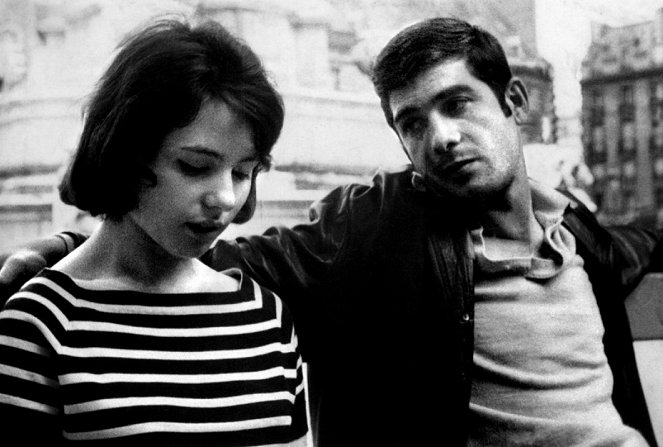Réalisation:
Jacques RivettePhotographie:
Charles L. BitschMusique:
Philippe ArthuysActeurs·trices:
Betty Schneider, Giani Esposito, Françoise Prévost, Daniel Crohem, François Maistre, Jean-Claude Brialy, Jean Martin, Henri Poirier (plus)Résumés(1)
L’indiscrète Terry, maîtresse d’un journaliste américain, a révélé à ses amants, Juan et Gérard, ce qu’ils n’auraient jamais dû savoir. (MK2)
Critiques (2)
Rivette’s approach to the characters in his pseudo-crime drama is indicated by the introductory quote from Charles Peguy, “Paris belongs to no one.” This statement not only contradicts the title of the film, but it also does not correspond to the opinions of most of those involved, who think that the city on the Seine belongs to them and that they have the exclusive right to set the rules of the game (didn't the self-confident cinéasts of the French New Wave think the same thing?). In order to give their petty existence greater meaning, they play the heroes of a grand (Shakespearean) tragedy, convincing themselves that they are involved in an international conspiracy. They choose the perspective from which they want to see their trivial problems. However, the film does not take a helpful approach toward them – it doesn’t artificially create dramatic tension or support the crime-thriller framing by employing genre conventions. With the exception of several “spy” shots from a bird’s-eye perspective, which indicate that the protagonists do not hold their fates in their own hands, as they believe they are just pawns in a game played by someone more powerful, probably the director (the “game” interpretation is supported by the repeated use of a chessboard motif in the mise-en-scéne). ___ Thanks to the stark rendering, the vanity of Parisian intellectuals is made clear, as they are closed off in their contrived worlds, convinced of their own great importance and untouchability. They are ridiculous in their empty debates and in the absurd constructs that they have to create in order for something dramatic to happen in their lives. I believe the overly intellectual nature of the protagonist was intended to be a means of parodying the pretentions of such people. However, this extremely uncommunicative (almost autistic) film does not offer any certainty with regard to its intentions in this or in any other respect. ___ The characters delight in mysteries, talk in riddles and take nothing seriously. With the exception of the somewhat defenceless main female protagonist, who, though she is much more sensitive than all of the men, is all the more susceptible to the artificially evoked idea of a major conspiracy and we should thus rather not take her as a reliable guide to the narrative. ___ Rivette’s feature-length debut is a more contemplative film than the breakthrough works of Truffaut and Godard. It doesn’t have the spontaneous flair Breathless, let alone the warmth of The 400 Blows. It dives unhurriedly into the paranoid social climate of Paris, or rather the whole of Western society, at the end of 1950s. Under the influence of Pirandello’s theatre experiments, Rivette considers the possibilities offered by the intertwining of real and possible worlds (in some scenes, the characters smoothly transition from theatrical dialogue to common speech). He utilises the atmosphere tainted by the fear of nuclear war and the Babel-like confusion of languages (a shot from Metropolis) while belittling both. ___ Paris Belongs to Us is not an entertaining film, nor is it long enough to have an impact on our perception of time (as in Rivette’s later work), nor do I think it’s directing is anything to write home about, but it at least helps to form a more complete picture of the “milieu” in which the French New Wave was born. 60%
()
(moins)
(plus)
Lutter contre le fascisme en Espagne est difficile, mais lutter contre un fascisme mondial amorphe, sans nom et sans frontières, est encore plus difficile. Il n'est donc pas étonnant que dans cette bataille paranoïaque et désespérée, les gens commencent à se suicider. Car pour lutter contre un ennemi apparemment inexistant, il faut une force intérieure, une résilience et une détermination intérieure encore plus grandes, que tout le monde ne peut pas supporter. L'épreuve peut arriver bientôt, peut-être même lors de la répétition d'une pièce de Shakespeare sans perspective. Qui triomphera ? L'effort pour faire une pièce selon ses propres convictions, même si cela peut être difficile à digérer et économiquement non rentable pour le public, ou la soumission au dictat des forces extérieures ? Peut-être que ce sont ces forces que nous essayons de voir tout ce temps. (Ou peut-être pas, qui sait ce que Rivette voulait dire...)
()

